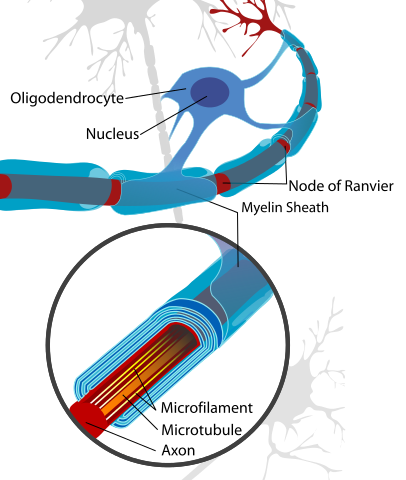Vitamin B12 is an important nootropic for healthy brain function, especially later in life.
![B12 as methylcobalamin. By Fvasconcellos 18:40, 30 April 2007 (UTC) (Own work, from ChEBI 28115.) [Public domain], via Wikimedia Commons](https://supplementsinreview.com/wp-content/uploads/2016/07/Mecobalamin_3D_sticks-273x300.png)
- Promoting healthy brain aging. B12 levels naturally decline as we age, and may be linked to age-related cognitive dysfunction.
- Supporting CNS health. Vitamin B12 is involved in numerous essential processes of healthy brain function.
Overview
Vitamin B12, also known as cobalamin, is a cobalt-containing vitamin with important roles in nervous system function, red blood cell production, and DNA synthesis. B12 is present in animal products such as meat, fish, and dairy, and some fortified foods can contain it as well.
Although most peoples’ B12 intake is above the recommended dosage, the incidence of vitamin B12 deficiency among the elderly population in Western countries is approximately 20%.1 The main cause for vitamin B12 deficiency in individuals 60 and older is malabsorption. In addition, vegans and vegetarians are also susceptible because of the lack of animal foods in their diet.
- B12 deficiency, known as hypocobalaminemia, may negatively impact cognitive function and increase the likelihood of developing neurological disorders.2
For patients at risk of vitamin B12 deficiency, supplementation with folic acid and vitamin B12 together is important, as the metabolic functions of these two compounds are tightly connected. Researchers believe that these two compounds play significant roles helping with a variety of mental conditions including mood and neuropsychological disorders.3
There are many commercially available vitamin B12 forms which share the core structure of this compound but contain different functional groups.
- Cyanocobalamin (CNCbl) is a stable and inexpensive synthetic form generally used as oral or parenteral supplements and food additives.
- Other forms of cobalamin such as hydroxycobalamin (HOCbl), 5′-deoxy-5′-adenosylcobalamin (AdoCbl), and methylcobalamin (MeCbl) are available as supplements with different routes of administration.4
Despite this variety of forms, the biological effects of vitamin B12 appear to be independent of its specific form — although some forms of B12 appear to have advantages in terms of absorption, potency and bioavailability.

How Vitamin B12 Might Help the Brain
Supporting genetic health of brain tissue
Vitamin B12 is involved in the formation of S-adenosylmethionine (SAM), a compound needed for important chemical reactions including the methylation, synthesis, and repair of DNA.5 Such essential processes are required for proper brain function.
Improving neural communication

Preserving cell membrane structure
Cell membranes use methyl groups donated by vitamin B12 for the conversion of phosphatidylethanolamine to phosphatidylcholine. This reaction is critical for mobilization of docosahexaenoic acid (DHA) from the liver, making it available for the brain cells.7
In fact, the decreased mobilization of DHA from the liver into plasma and peripheral tissues in addition to high level of plasma homocysteine might be a contributing factor to cerebrovascular and neurodegenerative changes in the patients with Alzheimer’s.8
Vitamin B12’s Proposed Brain Benefits
Vitamin B12 is popularly known as the “energy vitamin,” because its deficiency leads can lead to weakness, fatigue, and cognitive impairment. However, it seems B12’s “energy” benefits may apply far more to those who are deficient in the vitamin. As such, vitamin B12 may have some nootropic benefit for elderly individuals by supporting healthy brain aging, and anyone else at risk of deficiency, including vegetarians and vegans. It is associated with energized thinking; evidence is far more supportive of overall brain health during the aging process.
Research
Animal Research
Given its safety, studies of vitamin B12’s links to brain function are relatively rare in animals. Specific findings in rats indicate that:
- A maternal diet lacking folic acid and vitamin B12 decreases the levels of docosahexaenoic acid (DHA) and alters gene expression of neurotrophins, neuronal pro-survival proteins in the offspring brain, leading to impaired cognition910
- Vitamin B12 supplementation helps to preserve the levels of DHA and brain derived neurotrophic factor in the hippocampus and cortex regions of the brain 11
Human Research
Most human research on vitamin B12’s role in brain function has focused on the consequences of its deficiency, while the effects of B12 supplementation on brain disorders are less studied.
Further clinical trials are needed to determine the effect of vitamin B12 on age-related cognitive decline, and whether such supplementation could slow down or prevent the progress from mild cognitive impairment to dementia.
Deficiency in vitamin B12 and folic acid may be associated with Alzheimer’s
This frequently-cited study explored the link between Alzheimer’s and vitamin B12, folic acid, and homocysteine (tHcy), a by-product of the B vitamins. Plasma levels of tHcy, b12, and folic acid were measured in 108 healthy people and 164 Alzheimer’s patients (55 years or older). THcy levels were significantly higher, while folic acid and vitamin B12 levels were significantly lower in patients with Alzheimer’s in comparison with the control group. Moreover, a 3-year follow-up revealed that progression of the disorder was greater in people who had higher tHcy levels at the beginning of the study.
- The researchers concluded that “low blood levels of folate and vitamin B12, and elevated tHcy levels were associated with AD”12
Vitamin B12 deficiency might contribute to brain volume loss and cognitive decline in the elderly
The objective of this study was to investigate the relationship between vitamin B12 status and brain volume loss per year over a 5-year span in an elderly population. One hundred and seven volunteers (aged 61 to 87 years) without cognitive impairment were assessed for their blood B12 levels and associcated molecules, such as transcobalamin (TC) and homocysteine (tHcy). The study found that individuals with lower baseline vitamin B12 and holoTC levels experienced a greater loss of brain volume.
- The conclusion from this work was that “low vitamin B12 status should be further investigated as a modifiable cause of brain atrophy and of likely subsequent cognitive impairment in the elderly”13
This study examined the structural and functional changes in the brains of patients with B12 deficiency, and the effects of B12 supplementation. Sixteen people with B12 deficiency were tested before and after 6 weeks of vitamin b12 therapy (1000 micrograms daily, then weekly, and finally monthly); supplementation lead to the significant recovery of the initially impaired cerebral blood flow and improvement of basic neuropsychological functions.
- The researchers concluded that “micro-structural recovery lags behind functional recovery in patients with vitamin B12 deficiency following therapy and CBF change may be used as an early predictor of complete recovery in patients with B12 deficiency“14
In this double-blind study, 266 patients (aged 70+) with mild cognitive impairment received a daily dose of 0.8 mg folic acid, 0.5 mg vitamin B12 and 20 mg vitamin B6 or placebo for 2 years. The trial found that homocysteine was 30% lower in the group treated with B vitamins, and supplementation improved executive function, global cognition, episodic memory and semantic memory. In addition, dementia rating scores in patients with initially high levels of homocysteine were improved.
- The researchers concluded that “B vitamins appear to slow cognitive and clinical decline in people with MCI, in particular in those with elevated homocysteine”15
In this double-blind study, 195 people with mild B12 deficiency (aged 70+) received placebo, 1000 mcg vitamin B-12, or 1000 mcg vitamin B-12 + 400 mcg folic acid for 24 weeks. Vitamin B12 supplementation corrected the deficiency, and the B12 + folic acid group also saw increased folic acid concentrations and decreased homocysteine levels by 36%. However, neither group saw any improvement in cognitive function.
- The researchers concluded that “Oral supplementation with vitamin B-12 alone or in combination with folic acid for 24 wk does not improve cognitive function“16
Vitamin B12 levels appear to decrease in older individuals, and people with autism and schizophrenia
In this recently published study, the researchers analyzed levels of vitamin B12 (Cbl) and its various forms in postmortem brain samples of 12 autistic subjects (4–9 years), and 9 schizophrenic subjects (36–49 years). The brain tissue samples from 43 subjects of different ages served as a control. Total B12 level was significantly lower in control subjects older than 60 years of age.
In both autistic and schizophrenic subjects MeCbl and adenosylcobalamin (AdoCbl) levels were more than three times lower than age-matched controls. In autistic subjects, lower MeCbl was associated with decreased folate-dependent enzyme, methionine synthase, activity and elevated levels of its substrate homocysteine.
- The researchers concluded that “vitamin B12 levels in human frontal cortex decrease with age, especially MeCbl”17
Dosage for Brain Health
- Most studies related to brain health use doses of 1000 mcg vitamin B12 with or without 400 mcg folic acid
- Standalone vitamin B12 supplements supply anywhere from 500 to 6000 mcg
- Current recommendations on vitamin B12 intake are within the range from 1.4 to 3.0 mcg per day18
Supplements in Review Recommendation
- Vitamin B12 as methylcobalamin 1000 mcg with Folic Acid 400 mcg.
Vitamin B12 declines with age and appears to be involved in healthy brain function. Research shows that B12 declines in people aged 60 and older, and that B12 deficiency is implicated in the development of many neurological conditions, such as Alzheimer’s and brain volume loss.
1000 mcg is the most frequently used dose in studies, and folic acid appears to have a synergistic effect. Because of the close relationship between vitamin B12 and folic acid, it seems wise to combine the two for a better effect.
References
Leave a Reply